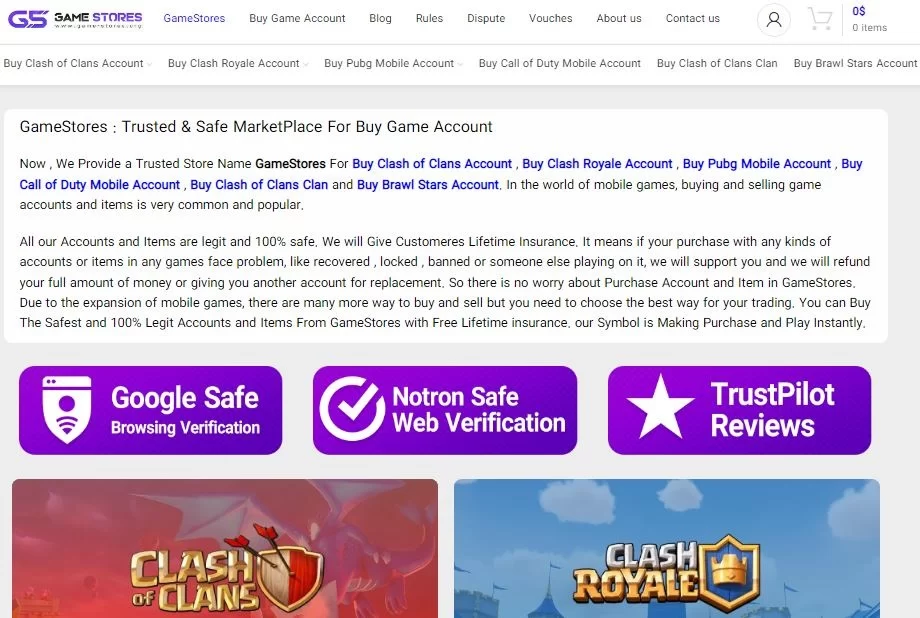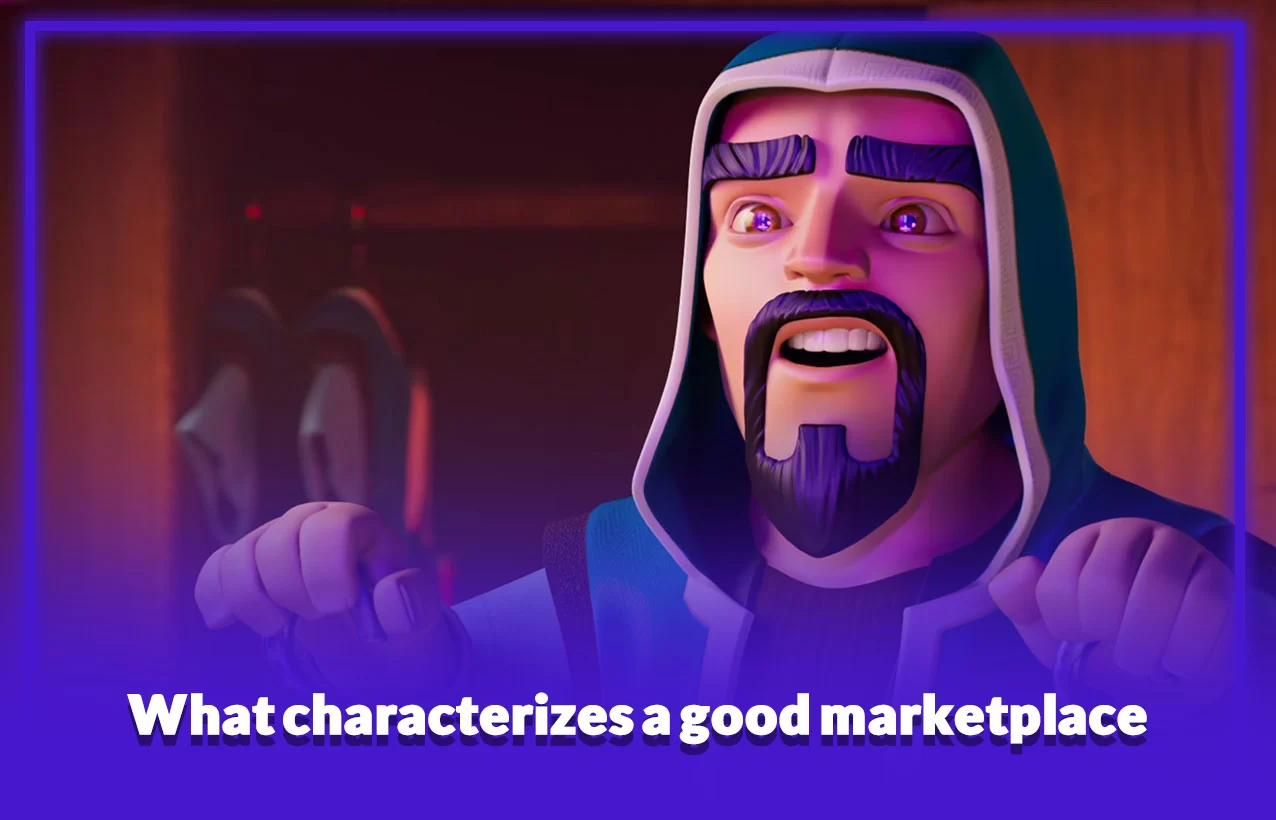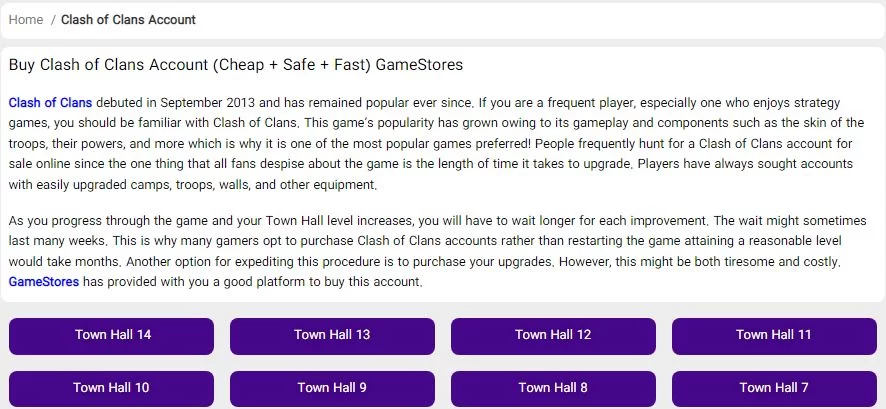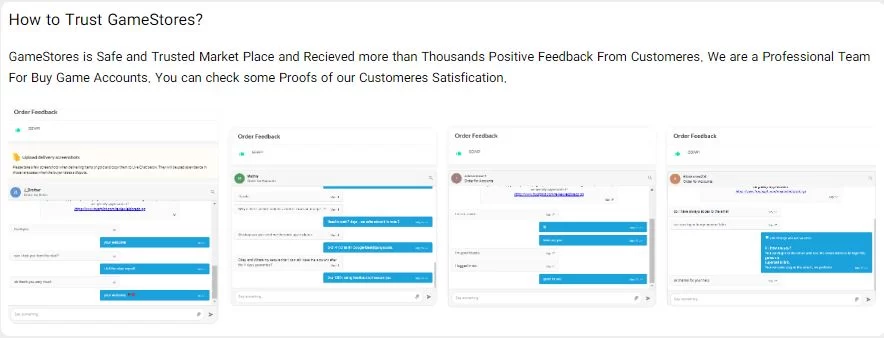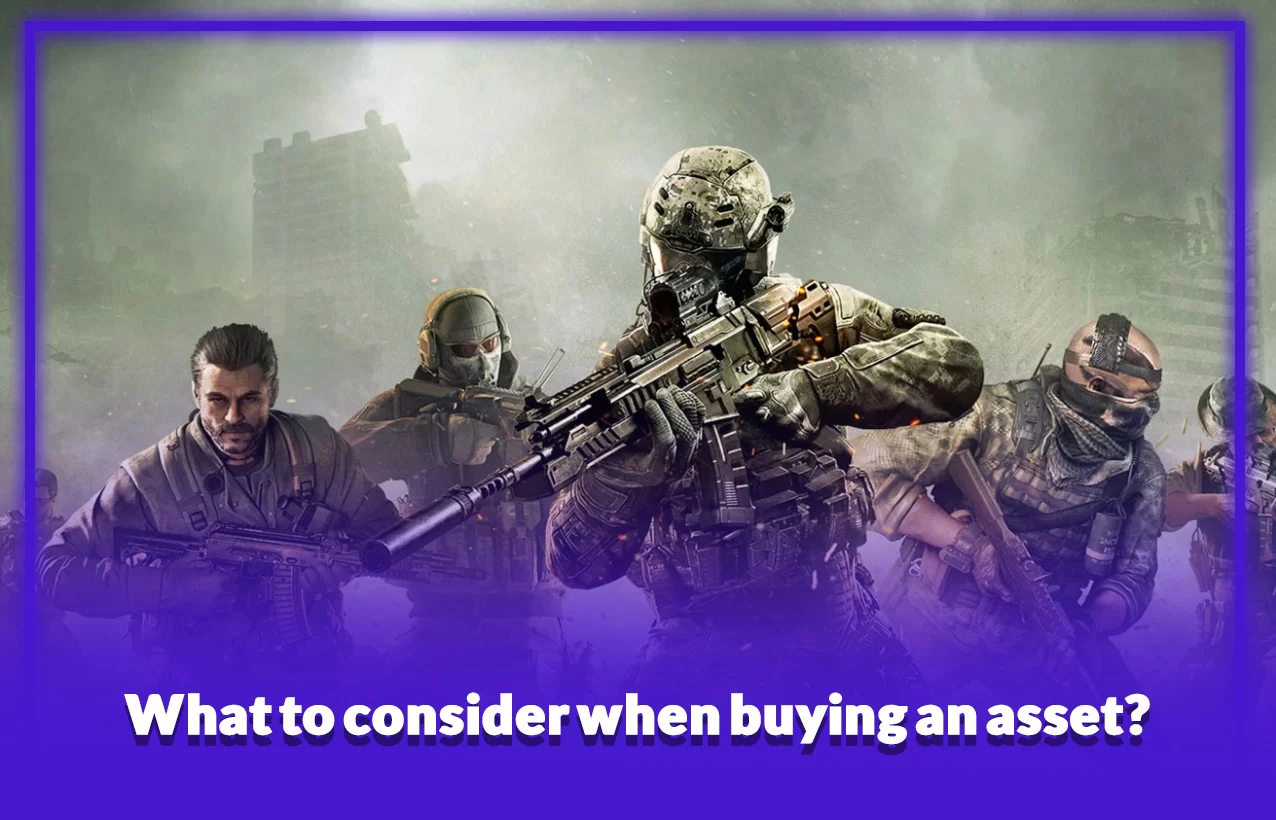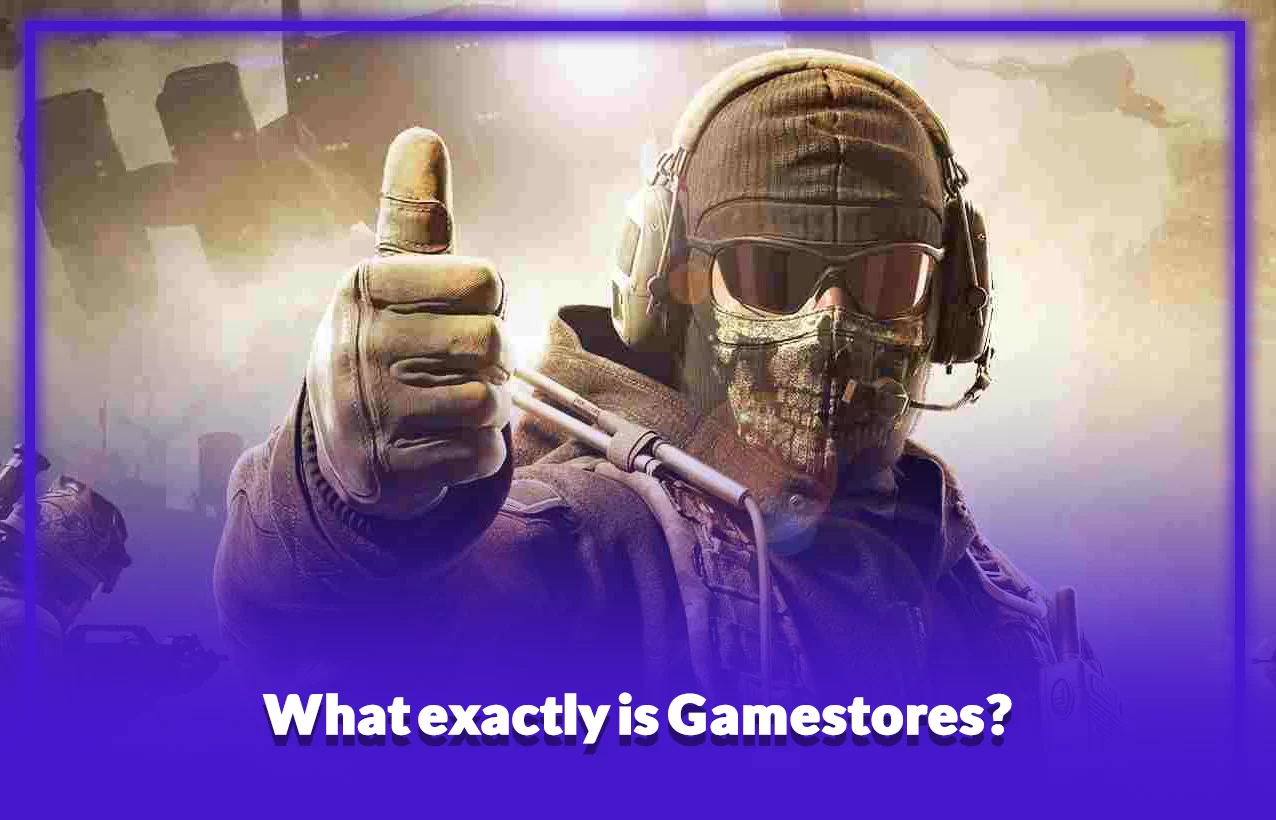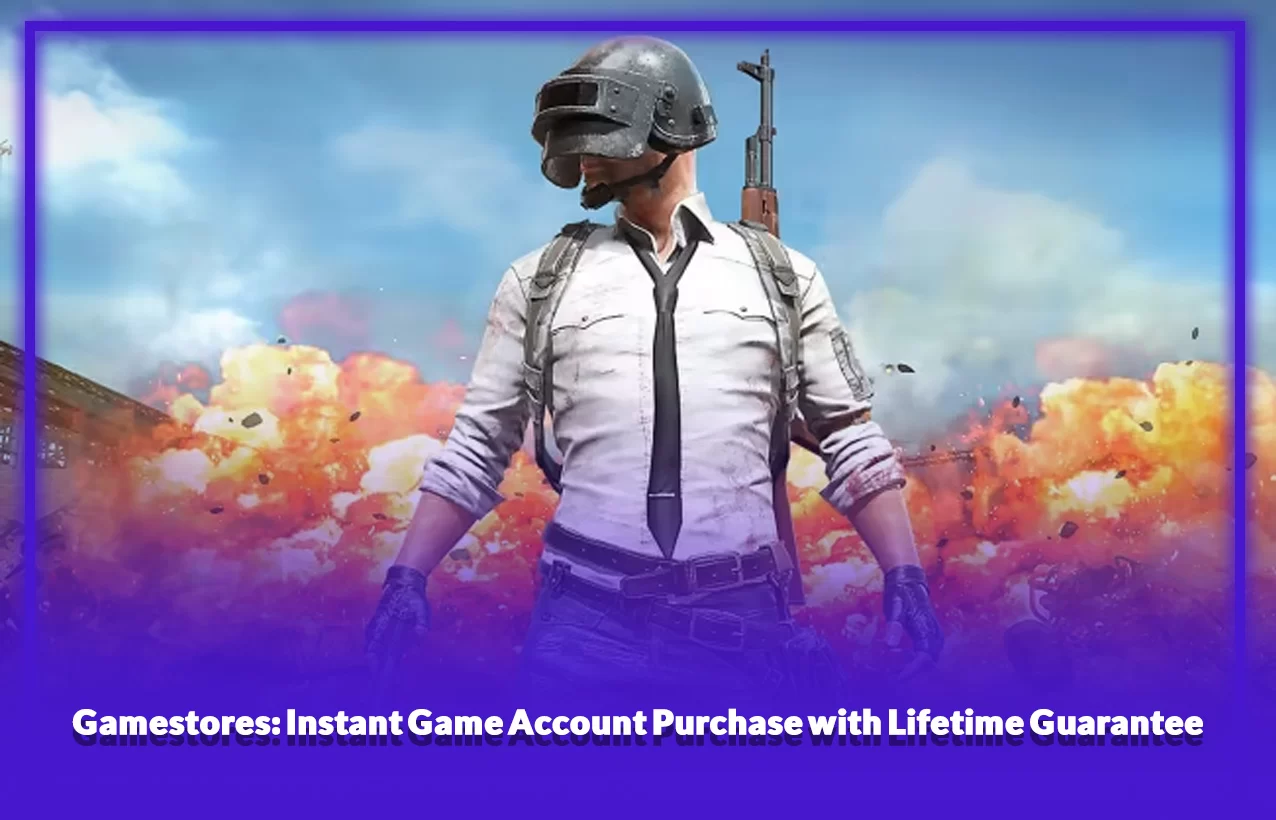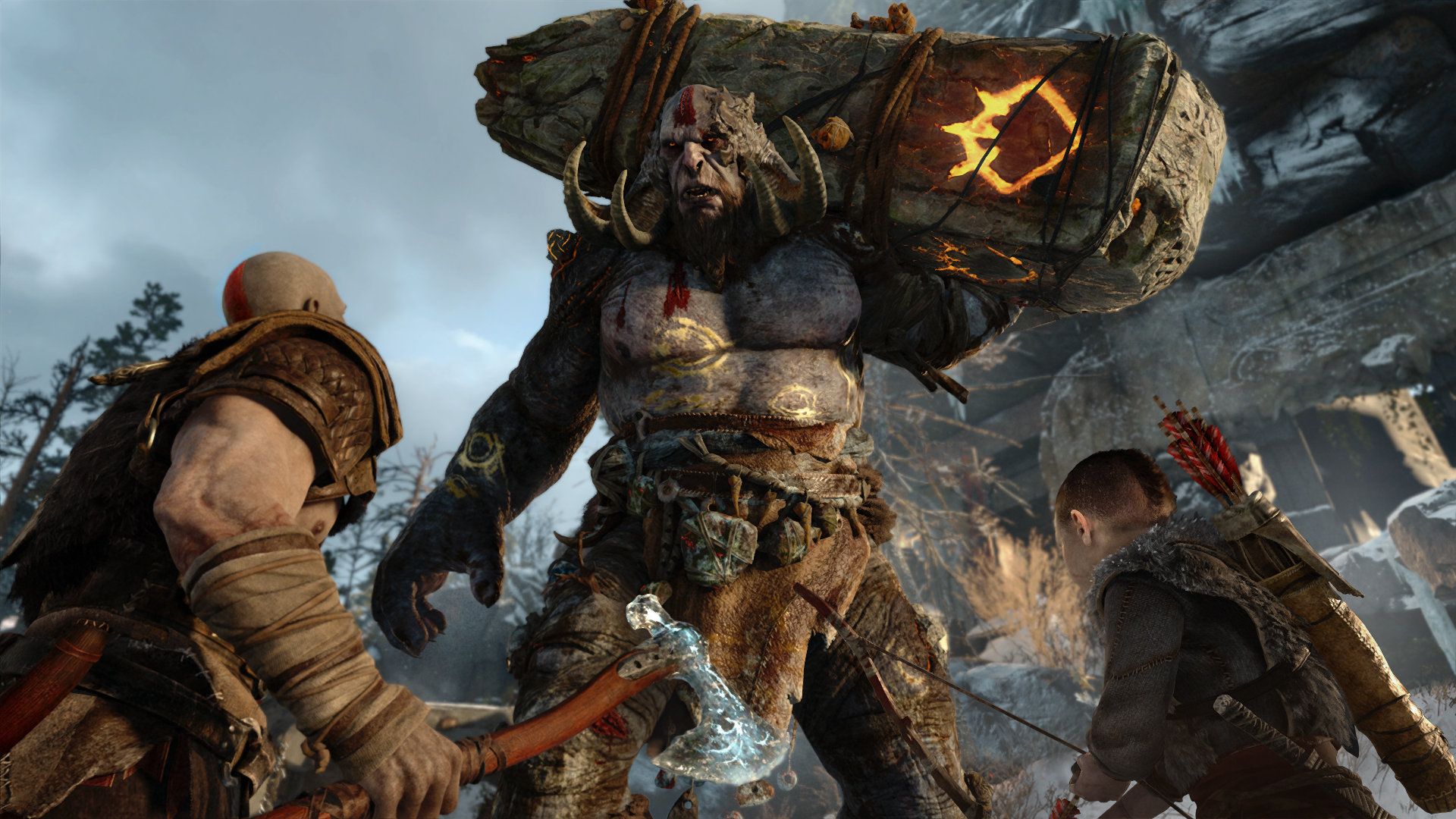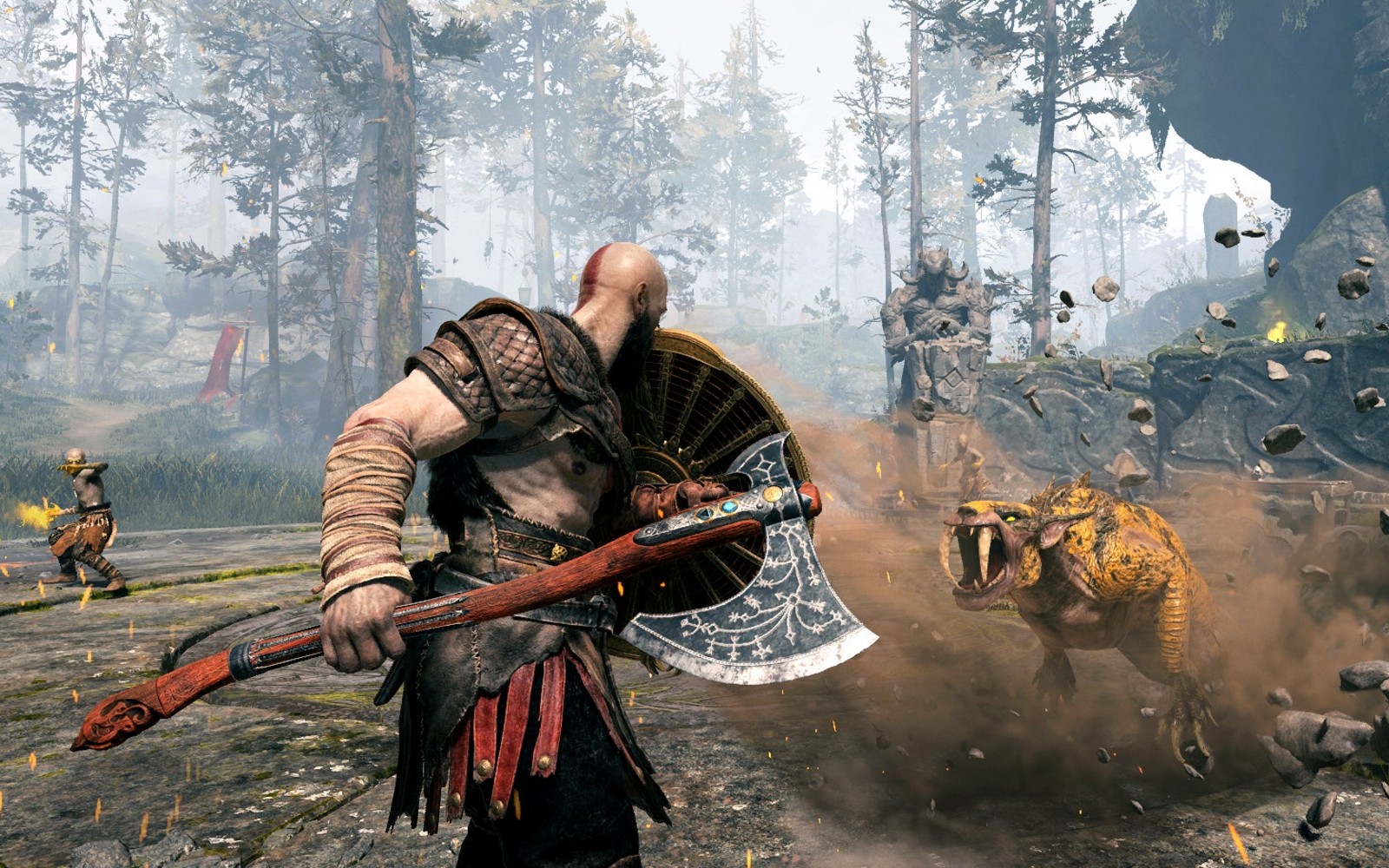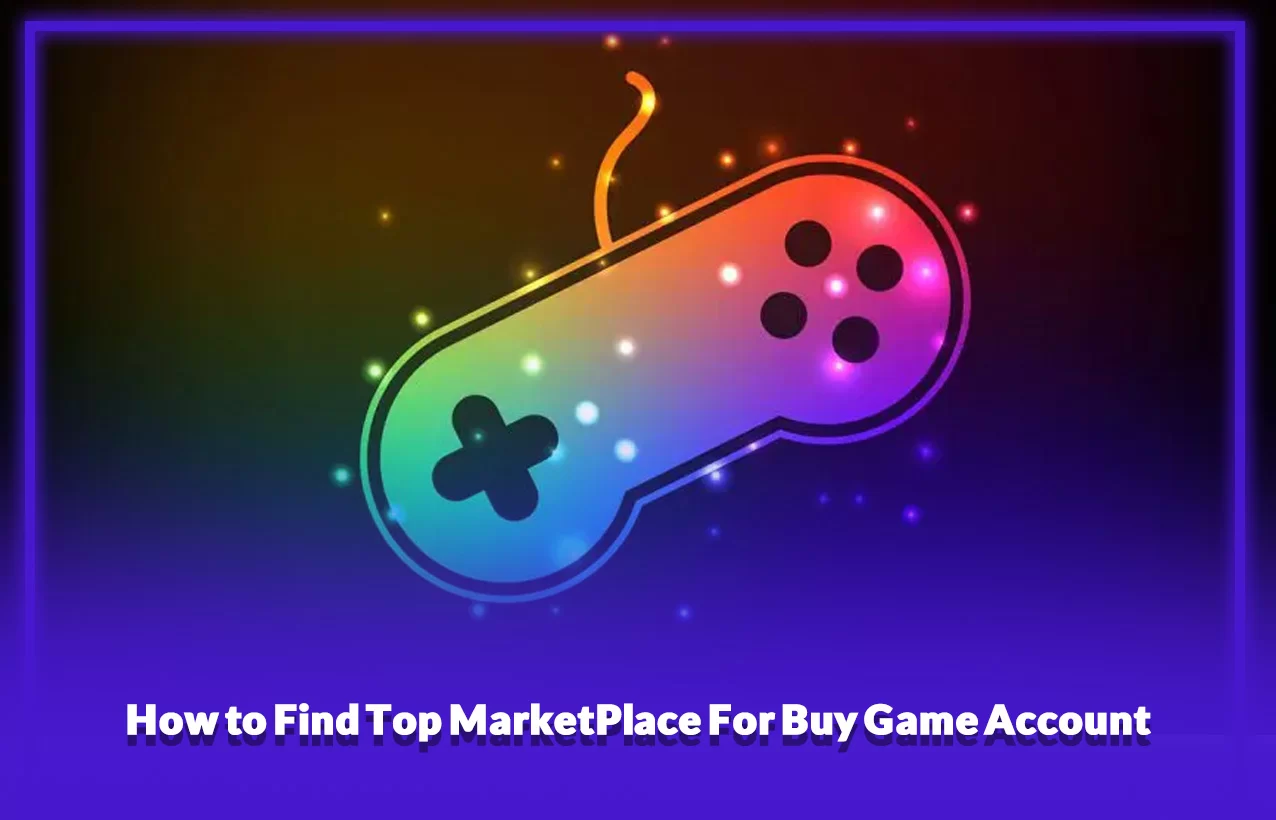

Sponsored Post
Game asset markets are excellent places to find high-quality, low-cost components for your game. You may save a lot of money and time whether you use them for a personal or business project.
They are ideal for getting your project off to a good start, prototyping, filling your environment with generic elements, defining the tone of your game, and making it more appealing to potential players or investors. Pre-made game assets and markets are advantageous for lone creators and tiny independent game firms working on a limited budget.
Here we present a comprehensive overview of game assets, including an explanation of why game assets are important, where you can get them, how to use them and how to get the best deals.
What exactly is an online marketplace?
An online marketplace is a type of eCommerce site where several merchants can sell their products or services to clients. Facebook Marketplace, Amazon, Etsy, Airbnb, and eBay or supercell market are all examples of online marketplaces. Because there are numerous merchants (hundreds of thousands, in reality) who may offer their items to clients that browse the online shopping website, these online stores are dubbed online marketplaces.
Traditional eCommerce stores provide a single brand’s goods and services, however, eCommerce marketplaces feature multiple marketplace vendors that sell online on their site. They have a more extensive product selection, which may entice more people to investigate their website.
One of the primary benefits of online marketplaces is that they attract a large amount of digital foot traffic, which may increase merchants’ visibility on their sites.
The fact that all online retailers use the same checkout process brings them all together. Customers who buy on an eCommerce marketplace do not need to click away to multiple websites to complete the transaction; instead, they can purchase from various merchants on the marketplace simultaneously, even if the merchants are not affiliated with one another.
When customers make purchases on sites such as Facebook Marketplace or Amazon, the merchants they buy from are notified that their product has been purchased, and each online seller may then independently ship and send the buyer the things that were requested from them. This implies that, while a buyer can complete a single transaction while purchasing from numerous vendors, their items will be dispatched from each seller individually, resulting in a shipping package from each merchant from which they bought a product.
Essentially, the experience for online consumers is similar to purchasing from numerous different online vendors at the same time while being able to pay all of the merchants in one transaction rather than several transactions.
Another feature that connects online markets is that they are often centred on a single specialization. Amazon, for example, began as a booksellers’ online marketplace. Airbnb began as an internet marketplace for renting out rooms in San Francisco.
Facebook Marketplace began by creating a profile for users, which eventually led to the development of a large userbase, allowing for online commerce. When businesses focus on a single niche, they are more likely to succeed because it provides consumers with a reason to purchase there, and when they do shop there, they know what to anticipate from the online retailers.
It is also known as a “Collaborative Economy” or a “Sharing Economy” since it is typically comprised of merchants that collaborate to share or sell idle assets on a community-accessible marketplace.
What characterizes a good marketplace?
Before we get into the features you’ll need to build a multi-vendor marketplace website, consider what makes a marketplace appealing and potentially profitable.
• Excellent design: Because the initial impression your customers form is still visual, the design of your online marketplace is important in inspiring them to begin interacting with the site.
• An easy-to-use user interface (UI): Interacting with your e-commerce marketplace website should be seamless as well, so carefully consider your UI, test it with possible consumers, and match it to your design solutions.
• A distinct value proposition: There are several leading online marketplaces in various categories with whom you will compete. As a result, your value proposition must be evident to both customers and sellers who may utilize it. The marketplace solution should address any issues users encounter in other applications, and it should provide something unique to differentiate itself.
• The appropriate monetization approach: Online marketplaces are profitable? Yes, they may be highly successful, but only if they employ the proper monetization technique. There are several options you may take (see them in our Marketplace Business Models Guide), and each one is appropriate for a particular sort of niche. When selecting how to monetise the marketplace, examine how online marketplaces earn money and consider the expectations of your target audience.
• An equal number of buyers and sellers: One of the secrets to the finest online marketplace’s success is the platform’s equal or almost equal number of customers and sellers. Otherwise, one of these parties will not find your marketplace interesting or worthwhile.
• The seller’s rating system Even for free online markets, quality assurance is essential. Allowing buyers to rate merchants and give comments is one of the finest methods to accomplish this.
HOW TO CREATE A MARKETPLACE WEBSITE: THE ESSENTIAL FEATURES FOR SUCCESS!
What elements are required to launch your own online marketplace? These are arranged in order of importance.
• Profiles of users/sellers: This is one of the initial characteristics; nevertheless, the profiles of vendors and buyers should be established separately. Buyers should be able to trace their orders and history and update their wishlists, while sellers should have inventory management, customer interaction tools, and analytical tools.
• Social interactions: Many customers want to share their positive online purchasing experience with their family, friends, and followers, therefore you should allow them to do so through social media integration.
• Listings of products or services: This is a key feature that provides access to various marketplace deals. Sellers can pay for the top spots on the list to increase their visibility.
• Extensive search: This functionality is required to enhance the user experience and allow them to search for the exact product or service based on particular specifications. This function, for example, is provided by the Booking travel site on its platform, which allows a consumer to filter hotel rooms based on a variety of criteria such as hotel characteristics, suitability for specific groups of visitors, payment choices, and guest ratings.
• Ratings and feedback: As previously said, this function is critical for quality assurance. You may use it to weed out merchants who are unable to deliver adequate quality and customer service.
• An order system: This is a key element of an online marketplace since it assists buyers in completing transactions for which you may receive a commission, depending on the circumstances and monetization model you choose.
• Payment alternatives: Having several payment alternatives is a wise decision because current shoppers like to pay using mobile wallets or even cryptocurrency.
• Transportation services: Shipping capabilities are required for every e-commerce platform that sells items. You must create a flexible shipping system that will deliver to the places where your purchasers dwell, or it may allow merchants to supply their own shipping services. In this scenario, pay close attention to user comments because delivery difficulties can derail or enhance the whole purchasing experience.
• Notifications and messaging: Buyers should be able to contact vendors with any queries they may have, and you may utilize tailored push alerts to communicate relevant offers from various sellers.
• Mobile-friendliness: Because mobile purchasing is becoming more popular, you should design your marketplace website with mobile device compatibility in mind. Mobile marketplace apps may augment the website experience and provide an extra sales channel.
• Analyses and reports, As a result, the data generated by your marketplace is critical for your marketing and company growth plans. The admin panel should have visual analytics and reporting dashboards.
IN TEN STEPS, LEARN HOW TO CREATE A MARKETPLACE WEBSITE!
Ten actions that you should take are listed below:
• Carry out market research
According to the Lean development process, the creation of each business begins with extensive research. At this point, you should examine the market dynamics and characteristics, your target audience, and current solutions to obtain a sense of the ecosystem you want to enter.
• Add business value
Having data-driven market insights can help you develop the value that meets the demands of both sections of your target audience – vendors and customers. The simplest method to establish a distinct value proposition is to examine the value supplied by rivals and explore ways to improve on it.
• Identify your target audience
The next step is to determine who your target users are and how to contact them. Pay-per-click (PPC) and social media advertising are two of the most successful methods since they allow for detailed market segmentation of target customers.
• Choose an appropriate business concept
Because markets are so adaptable, there are several business models to pick from, each of which correlates to a certain sort of marketplace. For example, a commission-based pricing model is advantageous when there are a large number of customers on both sides and acquiring new users is very simple. This type of approach, for example, may be appropriate for retail or fashion markets.
• Make a list of requirements
The next step is to create a list of requirements that will cover the specifics of your brand, the design solutions you want to incorporate, the list of features based on the business model you’ve chosen, payment options, and possibly some insights into your marketing and business development strategies that should also be considered during the technical implementation stage.
• Identify a dependable technical partner
There are several options available in the IT business. You may recruit an in-house team, collaborate with freelancers, or outsource your assignment to an offshore development vendor who has expertise in creating marketplaces.
• Make a prototype
Your development vendor will produce the initial prototype of your solution based on your requirement list, which you can then test with users to identify potential areas for improvement prior to technical implementation.
• Create your minimal viable product (MVP)
Developing an MVP is critical for each startup since it is the first functioning solution that people can test. Creating an MVP is also a cost-effective and time-saving strategy. Its objective is to assist you in determining which features are required for a flawless user experience and which would overburden the final product.
• Put the concept to the test and enhance it
After testing your MVP with prospective consumers, it’s time to enhance it depending on their input.
• Create and launch your Minimum Lovable Product (MLP)
You may develop an MLP based on the data you get after testing your MVP. This solution has a number of features that your consumers will like. After this step, your marketplace will be able to run successfully and with the loyalty of both targets user groups. However, you must still listen to their demands and criticisms in order to enhance and alter your marketplace.
Different Types of Online Marketplaces
There are numerous sorts of online marketplaces, and while they all operate in a similar manner, there are minor variances that might affect the shopping experience, the types of items sold, the people that buy there, and the service that the online marketplace claims to provide.
1. Physical Goods
Some internet marketplaces solely sell actual things. This means that merchants make or provide actual things that must be sent to customers who buy them.
Customers will get shipping packages from each merchant they purchase a product from when you have an online marketplace that offers tangible things, which might influence their user experience. It indicates they’ll be receiving many parcels, which might be perplexing if they don’t know what to anticipate. Customers that buy on your physical goods online marketplace should be aware that, while they may be performing a single transaction, the products are obtained from distinct merchants and the things they’ve bought will arrive separately from each different seller.
2. Digital Goods
Digital goods markets are another form of an online marketplace. These online marketplaces sell digital items that may be downloaded to computers or smart devices instantly after purchase, eliminating the need for customers to wait for their products to be sent and getting things one at a time from each distinct merchant. Creative Market is an example of a digital marketplace, where designers and artists offer digital assets such as stock pictures, logo templates, graphic designs, and more. We prepared a comprehensive Creative Market Review and even compiled a list of Creative Market’s Best Instagram Templates, which we highly recommend checking out for your online marketplace.
3. Real Estate and Spaces
Another form of an online marketplace allows users to rent or sell property, rooms, event spaces, or locations. Airbnb is a perfect example of this sort of internet marketplace since it allows property owners to rent out rooms, flats, homes, or properties all over the world. This form of online marketplace presents its own set of obstacles, such as government rules, property insurance, and booking confirmations, all of which must be followed and arranged in order to be sustainable and effective.
4. services
Other online markets can provide services to their clients, and merchants can rent or sell their wares to the marketplace. These sorts of online markets can offer digital services that can be completed online, such as website creation services, or they can offer in-person services, such as painting and restoration work. Fiverr, for example, is one of the most popular online markets for selling services.
The Difficulties of Launching an Online Marketplace
Developing online marketplaces is not the same as building online stores. Here are some of the most significant problems you might anticipate when launching an online marketplace:
1. Persuading online vendors and buyers to pick you
Attracting merchants and customers to utilize your online marketplace will be your most difficult issue when you initially launch it. Because you’re new, you’ll need to create trust with merchants so they’ll sell on your site, and you’ll need to make sure buyers realize your marketplace exists so they’ll think to shop on it. It will be difficult to persuade merchants to sell on an online marketplace if there are no customers already shopping there, and it will make no sense to attract customers to your online marketplace if no merchants are selling their inventory there.
By contacting suppliers first before attracting users to your online marketplace, you will also increase the inventory supply that your marketplace has to offer, which is critical for customers once they arrive at your online marketplace. There is no need for your consumers to purchase on your marketplace if there is no inventory, so secure the items and services before you begin attracting customers.
Consider reaching out to merchants who currently sell on Amazon, eBay, Facebook, or Etsy to begin finding merchants to offer goods and services on your online marketplace. This demonstrates that they are already comfortable selling on online marketplaces, and if you provide them with a compelling reason to sell on yours as well, they may be interested. Look for merchants that sell items that are related to the focused niche of your online marketplace.
When you’re just starting started, Sharetribe’s article on How to Build Supply for Your Marketplace may be a great resource for attracting merchants to your online marketplace.
2. Providing a valuable service
Online marketplaces can only be long-term successful if they answer a genuine issue for both businesses and buyers. This is why it’s critical to verify your idea before launching your online marketplace, so you don’t end up with a failing marketplace months or years later because it didn’t deliver value to merchants or consumers.
As previously stated, take your time creating your online marketplace and don’t commit too much funds upfront in case your online marketplace concept doesn’t survive the test of time. It is preferable to gradually expand your marketplace so that you can adjust and adapt to merchants’ and consumers’ needs as you go, resulting in the creation of an online marketplace that provides value to those merchants and consumers and thus becomes a successful online marketplace in the long run.
Concentrate on fixing an issue for both merchants and customers, and you’ll be more likely to deliver helpful service to both.
3. Dealing with rivalry
Even if you believe you have a brilliant concept for an online marketplace, it is probable that someone else has previously considered it. Although competition might be an impediment to launching and expanding your online marketplace, it should not totally dissuade you from pursuing it.
If there is already an online marketplace, you must discover a means to compete with them. Try competing on pricing, selection, quality, choice, the number of merchants, geographic region, or anything else that provides your online marketplace with a competitive advantage over competitors.
If you are unsure whether any current online markets are directly competing with your online marketplace concept, be aware that someone else is undoubtedly working on the same idea as you, and you will ultimately face competition. If this is the case, your only choice is to execute your online marketplace concept better or quicker than anybody else who is creating a comparable online marketplace, so think about how you can do so.
4. Costs in the Market
Every marketplace needs income and profit to live, therefore you’ll need to devise a feasible plan to ensure that your marketplace generates the money and profits it requires to thrive without eroding seller margins and frightening them away. Here we have some tips for you to manage your costs:
• Funding must come from the community you serve, so think about how your users will support your online marketplace.
• You must “own” each transaction, which typically implies charging a commission on each transaction you facilitate. This aids in the generation of money for your online marketplace. Top online marketplaces often charge 20-30% commissions as selling fees.
• Pay attention to the number of transactions that occur on your online marketplace rather than the number of users. Your online marketplace exists to enable transactions, and that is most likely how you will make income, thus it is the most crucial measure to monitor.
• Consider how you will compensate your merchants and how they will profit from offering merchandise to your online marketplace. You must also decide when to transfer money from the client to the business. It normally makes sense to transfer money from a consumer to a merchant only when you are confident that the customer will receive the items or services they paid for without any problems, such as refunds.
What to consider when buying an asset?
License:
Always verify the license before purchasing an asset when working on a business project to prevent legal complications.
In the case of game engine stores, it’s pretty straightforward. You can use the large majority of these assets in any project. (Note: Unity has a “Restricted Assets” type for non-commercial or educational projects.)
CGTrader has two license types (editorial and royalty-free). In addition, ArtStation uses both regular and commercial licenses to function (you can use both for a commercial project, but the standard limits you to 2000 sales or monthly 20 000 views).
Both shops enable the developer to choose a unique license.
Another license issue that might arise is when a creator does not have permission to sell the item. Game Engine shops offer a regulated mechanism for receiving content from authors, as well as a reporting system, which mitigates this problem.
Compatibility:
When you purchase an asset, you expect to save time and make your life simpler. An incompatible asset, on the other hand, will give you a headache. Accepting assets in-game engine marketplaces requires a compatibility check.
Make sure the asset specifications in non-engine stores are appropriate for your purposes. Occasionally, the artist will utilize a format that your engine does not support. Choose from 3D models in FBX or OBJ format, as well as textures in PNG or TGA format.
These stores frequently stock 3D models that are not intended for use in video games. They are extremely detailed, but when utilized in a gaming engine, they run poorly. Avoid them at all costs.
Reviews:
Always read the reviews and check the ratings before purchasing an asset. Only when at least a handful of individuals rate a product does the significance of the star. Read the reviews with the lowest ratings first since they will reveal the most issues. Take it with a grain of salt: some consumers may be unskilled or will disregard the directions.
Competitive pricing:
it is a key indicator of originality. The cheaper the asset, the more people who acquire it, and the more game content there will be. If something appears to be too good to be true, it usually is: either the quality is inadequate or there are legal difficulties (for example, the publisher ripped the model out of a game, and now he is trying to sell it as his own).
There are, however, fantastic deals: every Marketplace has frequent sale events where you may even purchase half-price assets.
• More options: Consumers dislike having several applications or accessing many websites owned by various retailers. They are far more likely to utilize a single website that hosts items from several merchants.
• Prompt delivery: When a client places an order, the marketplace sends it to the fulfilment centre, where it is packaged and placed in the waiting for delivery state. From the moment a consumer verifies an order, the entire procedure might take several minutes. The shipping time is mostly determined by the destination, but the good news is that a client may select the shipping speed, such as Two-Day Shipping with Amazon Prime or a free shipment with standard delivery.
• One of the major qualities of a good marketplace is simple returns. However, strong customer service may occasionally alleviate a client’s concern by swiftly replacing damaged products without organizing returns.
• Numerous payment options. A marketplace’s objective is to eliminate friction in both selling and purchasing and to provide a smooth payment flow. Customers can thus select payment methods that they are accustomed to (such as PayPal) or ways that are available in their respective locations, i.e. local payment methods.
What exactly is Gamestores?
The trustworthy digital account and item provider of many games, where each client may find a gaming account based on their preferences and hobbies. Purchase and play now with a Lifetime Guarantee from GameStores. GameStores is a MarketPlace where each consumer may discover a gaming account based on their preferences and hobbies. It wants to create a platform where everyone feels safe, secure, and interested. Lifetime Guarantee in the Variety Category GameStores offers unique accounts for each Level and Rank. It provides items that have been properly tested before being sold, in addition to a wide range of options.
Everyone can locate what they want on this website and obtain a Lifetime Guarantee on every transaction. It is instantly tied to the purchased goods, requires no confirmation after payment, and may be used several times if necessary.
It wants that every one of its clients to be safeguarded both during and after the transaction. This website provides dependable and courteous customer service, and it wants that consumers to feel free to contact them for any reason. It serves every customer with compassion and is always eager to assist. This team value their clients’ feedback and is always striving to enhance their services. This website supports purchasers’ interests and enters their stance, taking into account any scenario or difficulty. Our firm believes that you will find our Live Chat to be helpful and informative. You may also read other shoppers’ reviews and offer your own feedback about us.
Gamestores: Instant Game Account Purchase with Lifetime Guarantee
Buying and selling accounts in mobile games are done in a variety of ways. There is a lot of competition in the gaming sector these days. Everyone, without a doubt, plays at least one professional game on their mobile phone. Some gamers like playing many games at the same time. You must be connected with a store in order to have a good reference for all games. Gamestores Platform has one of the greatest and most up-to-date game collections. On this website, you can view a variety of games. Many staff and gaming hints may be found throughout this website. It is preferable to use the capabilities of this site to your advantage in order to fully enjoy these games. People of all skill levels and knowledge levels are welcome to utilize this site’s many features. You will be able to utilize the posted material in the Gamestores without any restrictions. This website has a variety of games. One of the services provided by this website is the purchase and sale of various accounts for example you can put your Clash of Clans Account for Sale or even Clash Royale Account For Sale. This site’s outstanding user interface and dependable mediator might be quite beneficial to you. Using this site can help you develop and raise your level in many games.
Since September 2016, GameStore has been one of the most respected businesses in the industry of selling game accounts and in-app goodies for mobile games. This team is delighted to be at your service with the introduction of the GameStore, given the width of its area of operation in this sector and the demands of cyberspace users in terms of purchasing accounts and things. GameStores is now engaged in Buy Clash of Clans Account, Buy Clash Royale Account, Buy Pubg Mobile Account, Buy Call of Duty Mobile Account, Buy Clash of Clans Clan, and Buy BrawelStars Account and is available to purchasers 24 hours a day, 7 days a week. The GameStore support team is available around the clock to answer all of your concerns and resolve any technical issues.
You can purchase a gaming account and request that it grants you full access to the email address associated with the game. One of the advantages of purchasing game accounts from GameStores is that you may play them immediately after making a purchase or purchasing in-game products such as gems, gold passes, and so on.
Contact him with your email and phone number if you want to buy a game account, for example, Buy Brawl Stars Account, directly from the manager and request a discount. You can contact us using these means if you want full access to the game account you purchased from us. Please feel free to contact us through live chat. We are accountable 24 hours a day, seven days a week!
To buy game account, check the website!



